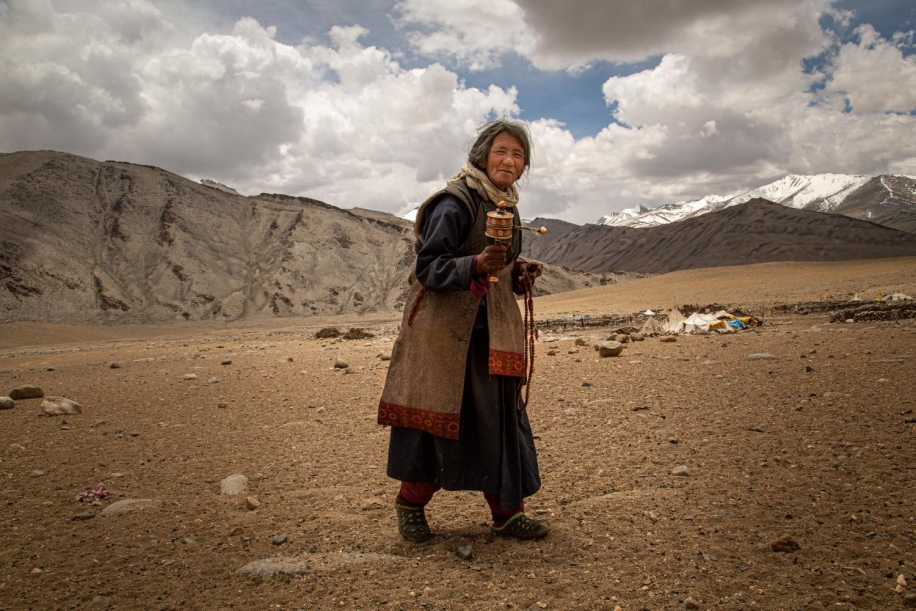
Nomadic populations bear the direct costs of climate change. Reduced water supplies, global warming, and shifting economic landscapes lead nomads to change their survival strategies by moving more often, developing new forms of trade, and relying more heavily on the international migrant economy. Environmental, political, and economic shifts have led to a steady decrease in nomadic populations worldwide. Yet, particular regions show remarkable resilience among migrant nomads, who reconfigure daily life and community survival in ways that reflect distinct forms of endurance.
This exhibition takes us to the Kashmir region of northern India, where Tibetan nomadic groups embody a distinct resolve to survive amidst some of the world's harshest conditions. In the highest altitudes of the Himalayas, nomadic farmers care for the rarest breed of pashmina goats to supply the most elite wool to the world market. This collection focuses on the labor, culture and survival of nomadic farmers who face the depletion of water under conditions of global warming. It depicts the daily aspects of resilience at the heart of the pashmina wool production chain, in the borderlands of extreme environmental and political conditions.
Jennifer N. Fish is a social documentarian who has worked with migrant populations around the world for the past 25 years. She has captured narrative and visual stories of displaced groups in five continents as a way to influence social policy change and a wider level of appreciation for those most severely impacted by shifting global economic, political, and environmental conditions. Her work includes a 10-year ethnography with the only global organization of domestic workers, a series of projects on elder women caretakers in HIV/AIDS pandemic, and extensive research with refugee populations worldwide. Her most recent Nomadic Climates project connects the lives of nomadic pashmina farmers with the global climate change crisis through stories of survival, water depletion, women's labor, and Tibetan cultural preservation. Each of her projects connects human survival stories to applied discussions of rights, global civic education and public dialogue for social change.
Tibetan Children's Villages
jfish@odu.edu
757.714.3949
Make Comment/View Comments